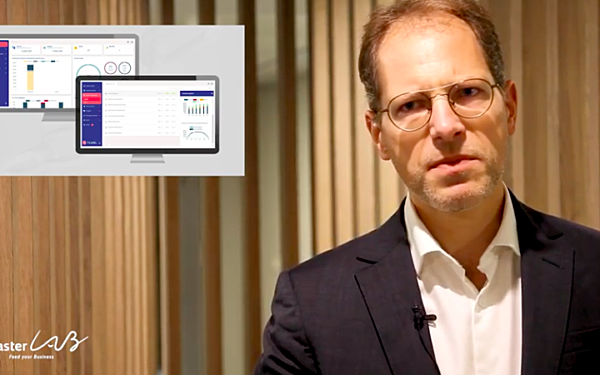Tilkal is an innovative platform that uses blockchain technology to make the entire supply chain of a food product transparent and traceable. EIT Food West’s director Martine Van Veelen awarded the startup with the ‘EIT Food Prize for Best Pitch’ at ToasterLAB’s 2020 Demo Day organised by Vitagora. Agrifood startups from all over Europe gathered at the event to pitch their startup to impact investors.
24 November 2020 – Today Tilkal was chosen out of 17 early-stage startups and scaleups who pitched at the ToasterLAB’s 2020 Demo Day. The event was organised by Vitagora and supported by EIT Food West who awarded Tilkal a 1.250 euro prize for the best pitch. Besides the prize money, the winning startup gets access to EIT Food’s support and valuable networking opportunities.
“At EIT Food West we support startups that match with our focus areas of circular food systems and digital traceability”, explained director Martine Van Veelen at the award ceremony. “We look for innovative ideas that are scalable and already on the market so we can help them increase their positive impact. And there was one startup who ticked all the boxes!”
A 360° view of the supply chain
The French startup Tilkal shows the potential of blockchain for our food system. The platform makes the entire supply chain of a food product traceable and transparent. Blockchain technology is used to collect and store data on sustainability, quality and safety for each step in the supply chain.
As a result, it helps companies to get an overview of their supply chain, which allows them to optimize it. Furthermore, consumer’s trust is restored as the user-friendly technology allows for full transparency from raw material until the consumers level. The innovative technology and platform can be applied to a wide range of food products, which makes it an interesting player for the innovation of the agrifood industry.
“CEO’s of the food industry want to have a 360° view of their supply chain to become more sustainable, profitable or resilient in a constantly changing landscape”, explains CEO Matthieu Hug. “This always leads to the same challenge: you need to be able to access data and that is difficult as modern supply chains are very fragmented environments. Medium-sized companies easily work with 50-200 suppliers, so a supply chain often consists of 20-100 steps from the raw material to the end product.”
Companies know the first few tiers of suppliers, but the sheer size of supply chains these days causes a lot of anonymity. “As the largest part of the supply chain is completely unknown to most companies, there is no access to data. This lack of control causes lots of issues both upstream and downstream the supply chain.”
The source of raw materials is one of these issues. “Nuts are commonly imported from Turkey, where concerns about child labour occur. The same applies to the harvest of cocoa and coffee in some African countries.” These issues can be tackled when there is full transparency and traceability of every element in the supply chain.
Restoring Consumers Trust
The traceability also works in the other direction, for example, when a product needs to be recalled for safety reasons. “If you give a lot number to a retailer, and you ask the retailer in which stores the product is stored, nobody can answer the question. But if you don’t know where they are, you can’t remove them”, explains Hug. “That’s what happened with an infant formula from Lactalis in France. It took four full months to retain all products from the market.”
“Through a QR-code on each product, we want to reach consumers and share the entire life cycle of a product”, explains Hug. “In this case of Danone, you scan your product and you know immediately if it is safe to use or not.”
The transparency not only serves to inform consumers but also to restore trust in a global and anonymous food industry. “There is a strong connection between the current lack of transparency and the mistrust of consumers: they don’t know the origin of the products they buy and they have the feeling that information is being kept hidden from them. We need to lower that level of uncertainty”, states Hug.
Next steps
Winning EIT Food’s Best Pitch prize comes at a great time for Tilkal and CEO Matthieu Hug is grateful for the support. “We want to help European companies differentiate so getting recognition from EIT Food is an exciting opportunity for us. We are trying to scale and offer our solution to more European food actors. To do that, it’s important to be part of a trusted network, so large industrials can get to know us, and know that our credentials that have been checked by EIT Food. ”
Watch the pitch here:
More information: www.tilkal.com
More News from EIT Food West


Gardens4Good: Cultivating Community, Nourishing Lives


